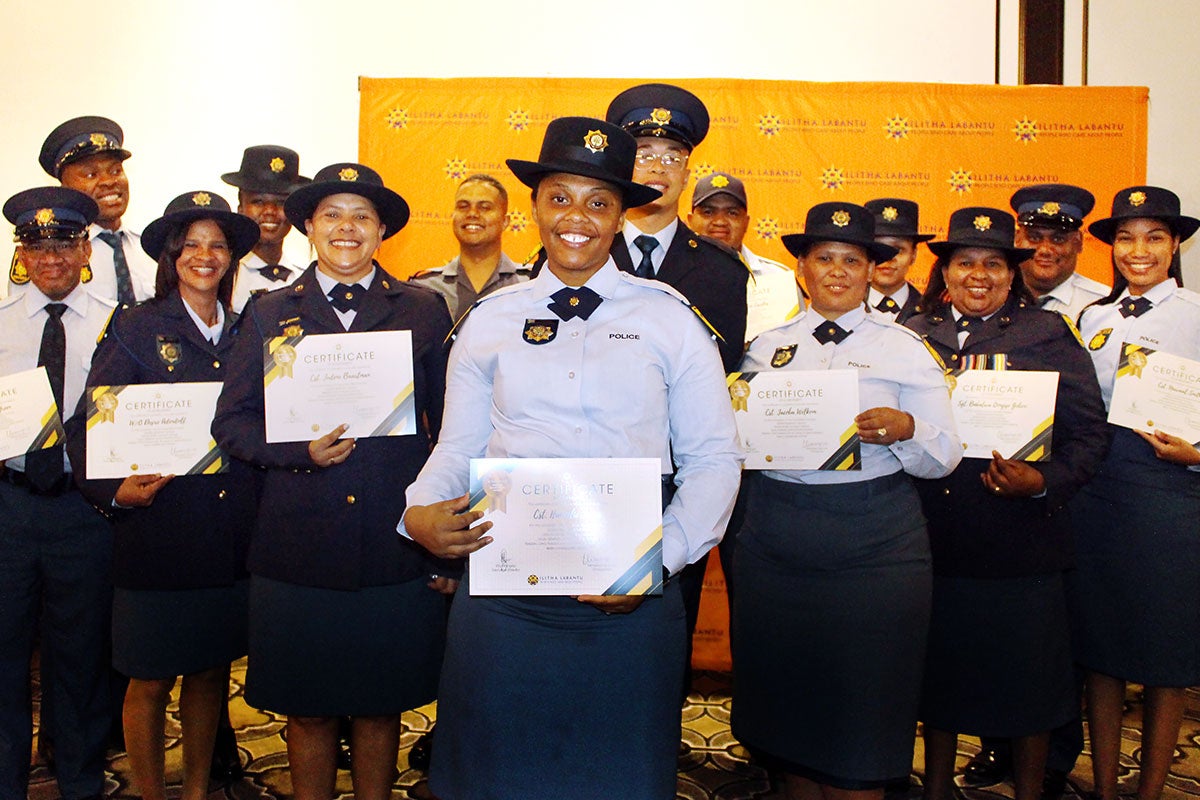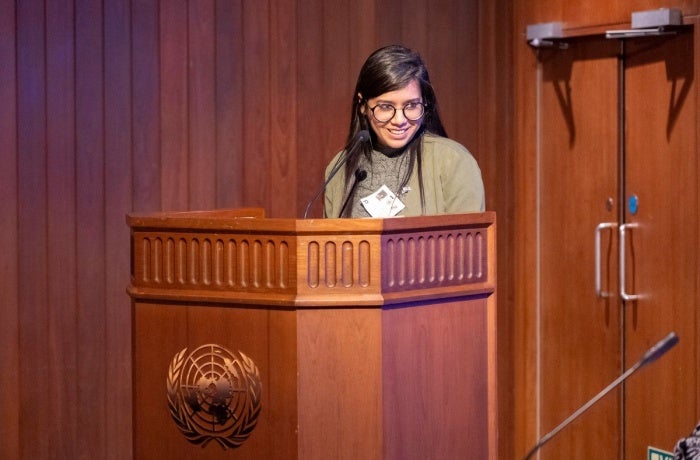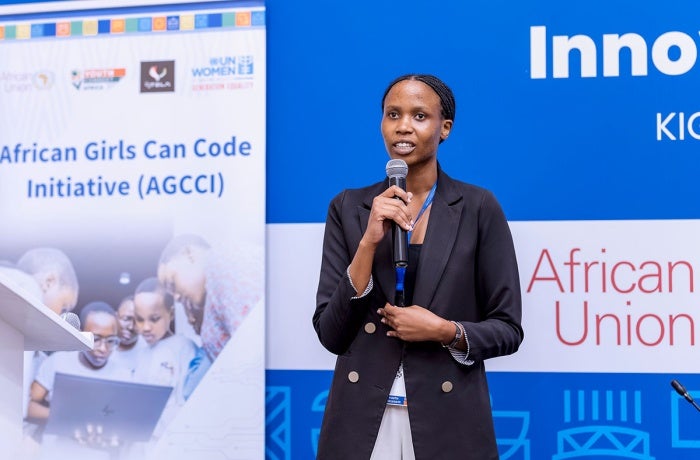South African women’s group trains police to respond to gender-based violence
The rate of violence against women and girls in South Africa is among the highest in the world: according to official statistics, one in five women in relationships have experienced physical violence by a partner.
Many more have suffered other forms of violence by men they know and strangers. One principal hurdle to tackling this issue is the fact that many cases of abuse are not reported to authorities.
In some cases, victims are reluctant to report abuse because they feel that police officers are inadequately trained to deal with gender-based violence and may be dismissive or insensitive to their concerns.

“We used to get complaints from our clients about how badly they were treated at police stations”, said Ella Mangisa, Executive Director of the local women’s rights group Ilitha Labantu. “A woman running away from a violent situation would be told to go back and sort things out with her abuser or be told these are personal issues they need to resolve.”
“As we dug further, we realized that it was a lack of understanding, sensitivity, and a lack of knowledge on the part of the frontline officers”, Mangisa continued. “Many didn’t know exactly what to do when a woman comes in to report or how handle a survivor in their most vulnerable state.”
“Eventually we decided that instead of constantly reporting individual officers for these incidents we needed a broader, solutions-based approach”, she added.
Through a partnership with UN Women and with support of the government of Ireland, the Elma Foundation, and Bread of the World, Ilitha Labantu launched a programme in 2021 to work with the South African Police Service (SAPS) on a survivor-centred approach to instruct officers on working with survivors of gender-based violence.
The training programmes cover topics such as defining gender, gender sensitivity, harmful social norms, legal remedies and procedures, the role of the SAPS, working of survivors of violence, handling traumatized individuals, and basic counselling.
Reducing violence against women in South Africa needs “a whole-of-society approach”, said Aleta Miller, Representative of UN Women’s South Africa Multi-Country Office.
“This Ilitha Labantu-led initiative is an opportunity to work towards standardization of GBV reporting desks in police stations, improve the experience of survivors when reporting cases, and ensure police have the necessary training to respond to the of violence against women and girls, responding to the needs of women and girls”, she added.
The SAPS has embraced the programme, and it has been implemented across 75 police stations in the Cape Metro and Cape Winelands of the Western Cape Province. On 1 December 2023, 66 officers graduated after completing all the training modules.
Ilitha Labantu plans to further expand the programme across South Africa, bringing in other organizations with different areas of expertise. The organization also hopes to integrate the content from its trainings into the curriculum of the country’s police academies.
One of the programme’s participants, Sargent Rudolf Valentyn, a social crimes prevention officer, said the training gave officers tools to better deal with gender-based violence.
“In our community we have a serious challenge with [gender-based violence] and over the past few months I have gained a lot of experience and knowledge in handling these”, she said. “We learned about subjects such gender sensitivity and listening well without being judgmental towards our clients when they come to report. We also learned about the different stages of abuse and different types of interventions.”
Valentyn said officers are also sharing knowledge from the trainings with their colleagues and have built a support network for such information throughout the police force.
Since the programme’s launch, Ilitha Labantu has noticed a significant reduction of complaints about local police stations from their clients and the organization now gets more referrals from the police when officers need assistance on specific cases. Following their participation in the programme, several police stations have also created more welcoming and warmer environments in victim support rooms.
“The feedback we have been getting from both the community and the police has been encouraging”, Mangisa said. “The police who have gone through the training are reporting on how they now know what to do from the minute a survivor walks into the station.”
“This effort will go a long way to strengthen the working relationship between the SAPS and communities by building capacity and training to educate and sensitize them on matters related to ending violence against women and girls”, Miller said.
“The course was an eye-opener for me”, said Sargent Petrodene Pietersen, who participated in the trainings. “I’ve learned legal principals which I didn’t take much notice of initially. I’ve also learned the correct way to counsel [victims], to follow-up with them, and the way counsellors must treat victims.”
“I would highly recommend the programme to my colleagues as it benefits us as officers, the victims, their families, and the broader community” Pietersen said. “It has been empowering and will enable us to better serve our communities.”









